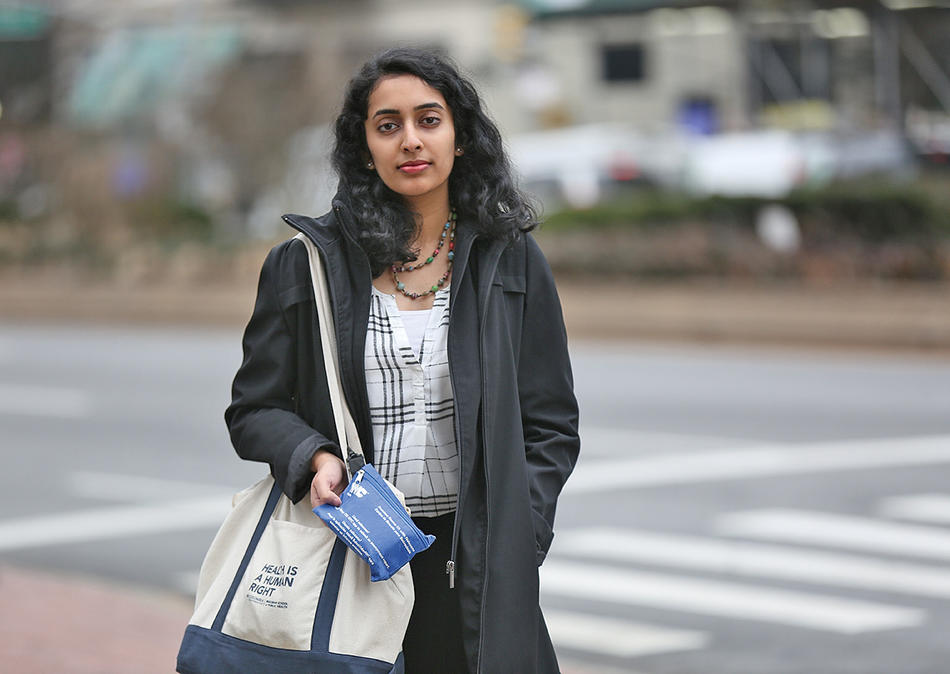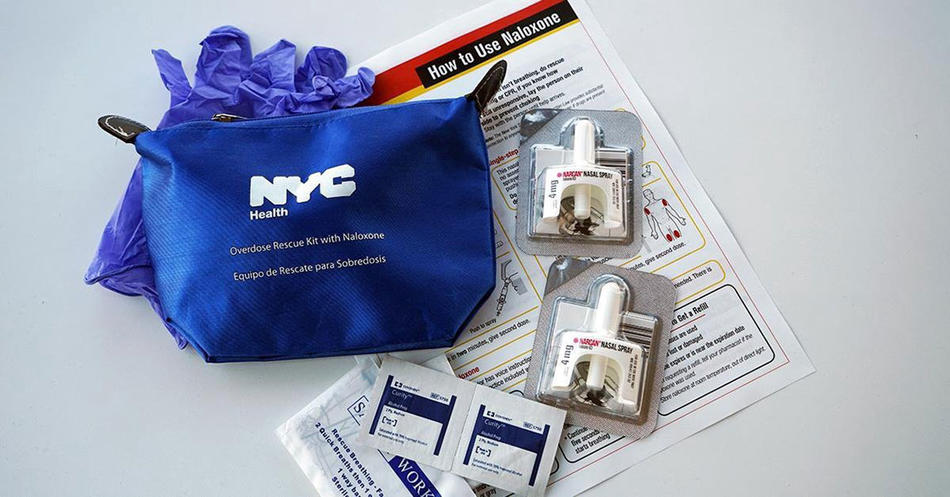Sonalee Rau ’14CC was on her way to meet friends for a day of apple-picking in upstate New York last fall when, upon approaching the Metro-North train station at 125th Street in East Harlem, she saw a group of people gathered around a man lying unconscious on the sidewalk.
“I heard a woman yell, ‘I think it’s an overdose,’” says Rau, a master’s student in health policy and management at the Mailman School of Public Health.
Rau, removing a container of the overdose-reversal drug naloxone that she had clipped to the strap of her bag, bent down and administered a spray of the medication into one nostril while a bystander called 911.
“Almost instantly, his eyes flickered,” says Rau. “I could see he was coming to, and I heard sirens, and FDNY was there.”
Rau isn’t the only Columbia student who may have prevented a stranger from dying of an opioid overdose. In the span of less than a year, four others have intervened in the same way by using naloxone, which is also sold as Narcan. They learned to recognize the signs of opioid overdose and to administer naloxone in training sessions that Columbia has been offering free to students, faculty, staff, and local residents since January 2018.
The training program was launched by Kellie Bryant, an associate professor at the School of Nursing, who recognized that the opioid crisis required a community-wide response in New York City, which has some of the highest rates of fatal overdoses. To date, the University, which works closely with the city’s health department on the program, has distributed naloxone kits and provided training to more than 2,500 people.
Michael McNeil, the chief of administration for Columbia Health, says that researchers are also studying the effectiveness of the program. He notes that while many overdose-prevention programs have been launched around the US in recent years, there isn’t yet a body of research to back up specific intervention strategies.
“Our team hopes to establish the science that helps define best practices,” says McNeil, who recently visited the White House with colleagues to present key findings from the program.




